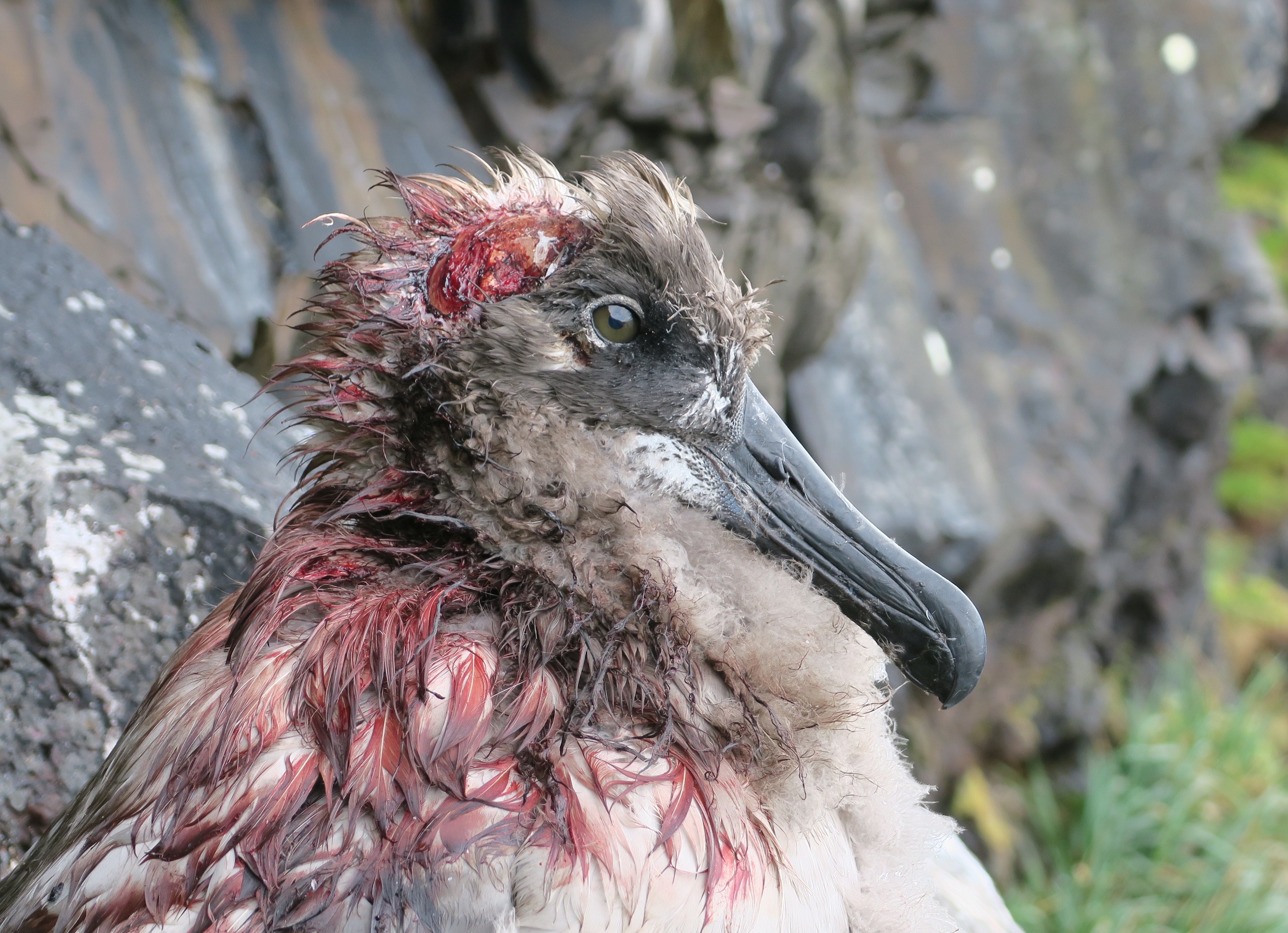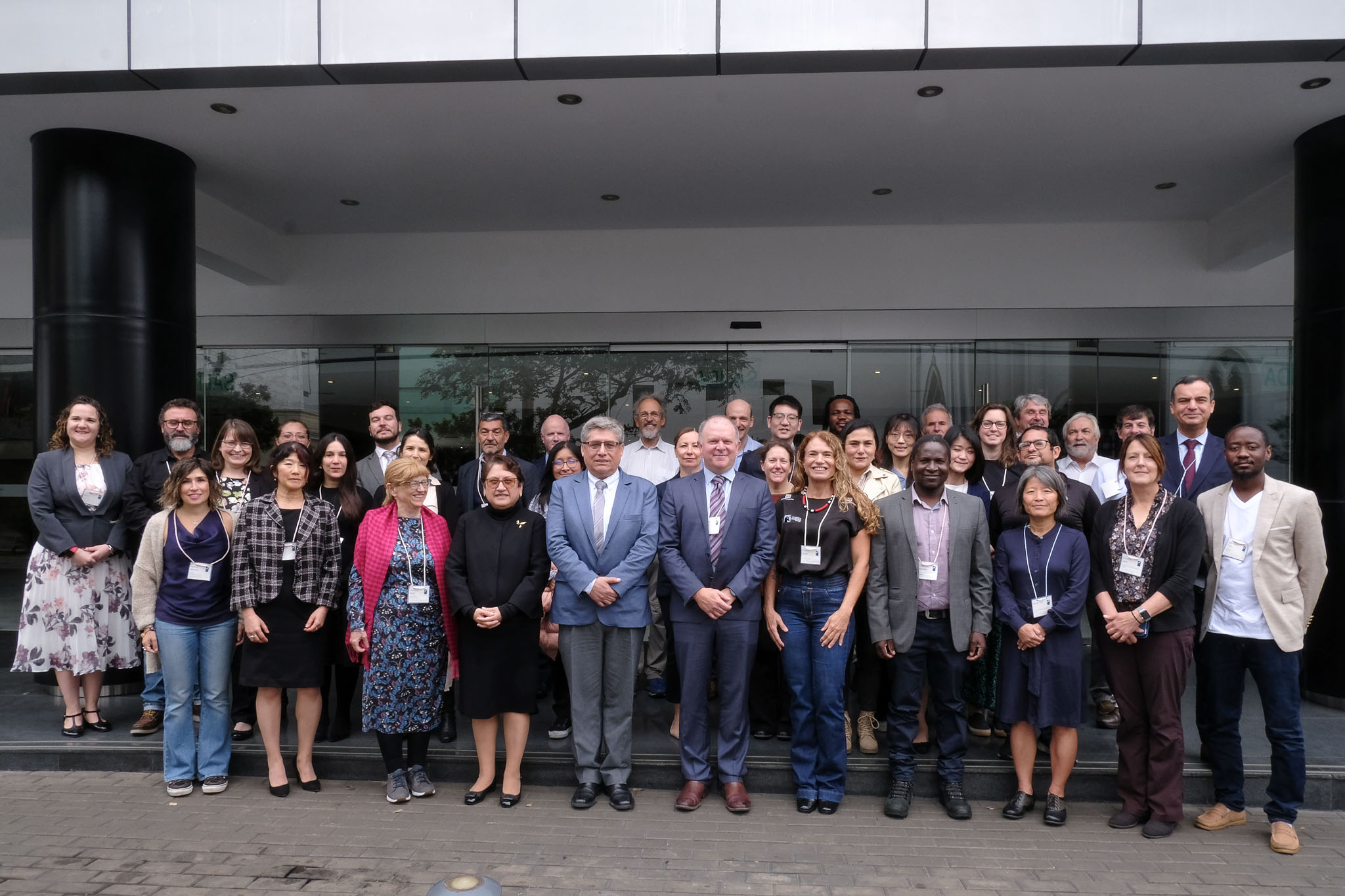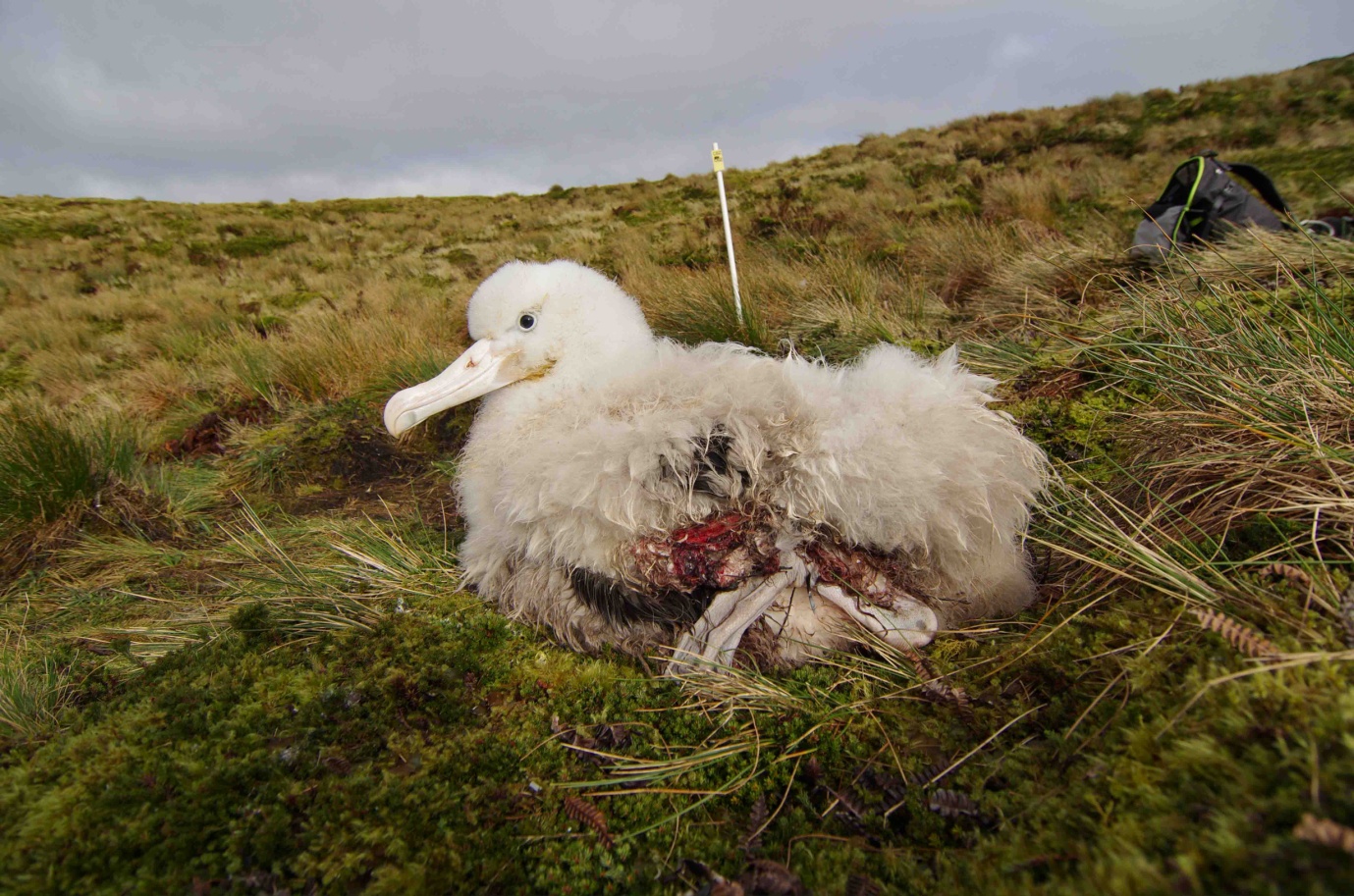
This Near Threatened Light-mantled Albatross Phoebetria palpebrata chick did not survive night-time attacks by introduced House Mice on Marion Island, photograph by Peter Ryan
The 14th Meeting (AC14) of the international Agreement on the Conservation of Albatrosses and Petrels (ACAP) was held in Lima, Peru over 12-16 August 2024. In considering the report of its Population and Conservation Status Working Group (PaCSWG), which had met the previous week, the committee agreed that the ACAP best-practice Guidelines for Eradication of Introduced Mammals from Breeding Sites of ACAP-listed Seabirds, last updated in September 2019, should be reviewed in the light of new insights gained from recent attempts to eradicate House Mice Mus musculus from islands, noting particularly the failed eradications of House Mice on Gough Island and Sand Island, Midway Atoll. The Advisory Committee agreed to add this task to its Work Programme for 2023-2025 (AC 14 Doc. 22 and Annex 5 Task 2.9 of the AC14 report).

Participants of the Fourteenth Meeting of ACAP's Advisory Committee in Lima, Peru. South Africa’s Member, Dr Azwianewi Makhado, is fourth from the right in the front row, photograph by the ACAP Secretariat
The AC14’s decision to undertake the review was informed by South Africa’s Information Paper (PaCSWG8 Inf 07) to the working group reporting on progress with the Mouse-Free Marion (MFM) Project (click here) and a statement in its report (see AC14 6.10) from the United Kingdom to the working group that gave an update on the investigations by the Royal Society for the Protection of Bird’s Gough Island Restoration Programme into the recent failure to eradicate House Mice from that island.

A severely wounded Critically Endangered Tristan Albatross D. dabbenena chick after overnight attacks by House Mice on Gough Island, photograph by Karen Bourgeois/Sylvain Dromzee
South Africa, the United Kingdom and the USA, along with the PaCSWG and ACAP Science Officer, will participate in the planned review of the eradication guidelines during the intersessional period (AC 14 report Annex 6, Item 2.9). South Africa will input through its national member of the PaCSWG, Dr Azwianewi (Newi) Makhado (Oceans & Coasts, Department of Forestry, Fisheries and the Environment). The MFM Project will support Newi in this endeavour, thus helping ensure the guidelines take particular notice of the issues relating to the eradication of House Mice on islands, especially where they are the sole terrestrial predator and include seabirds in their diet, such as on Gough, Marion and Sand Island, Midway Atoll. The MFM Project’s ongoing field research on Marion Island, including its plans for an aerial-based bait trial in 2026, will help formulate the guideline’s recommendations for planned and future mouse-eradication projects.
References:
Advisory Committee, Secretariat 2024. Advisory Committee Work Programme 2023-2025. Fourteenth Meeting of the Advisory Committee, Lima, Peru, 12-16 August 2024. AC14 Doc 22. 15 pp.
Agreement on the Conservation of Albatrosses and Petrels 2024. Report of the Fourteenth Meeting of the Advisory Committee, Lima, Peru, 14-16 August 2024. 92 pp.
Phillips, R.A. 2019. Guidelines for Eradication of Introduced Mammals from Breeding Sites of ACAP-listed seabirds. Agreement on the Conservation of Albatrosses and Petrels. 10 pp.
Population and Conservation Status Working Group 2024. Report of the Population and Conservation Status Working Group. Fourteenth Meeting of the Advisory Committee, Lima, Peru, 12-16 August 2024. AC14 Doc 14 Rev 2. 41 pp.
Wolfaardt, A. & Makhado, A. 2024. An Update on the Mouse-Free Marion (MFM) Project. Eighth Meeting of the Population and Conservation Status Working Group, Lima, Peru, 9 August 2024. PaCSWG8 Inf 07. 3 pp.
John Cooper, Emeritus Information Officer. Agreement on the Conservation of Albatrosses and Petrels, 30 September 2024

 English
English  Français
Français  Español
Español